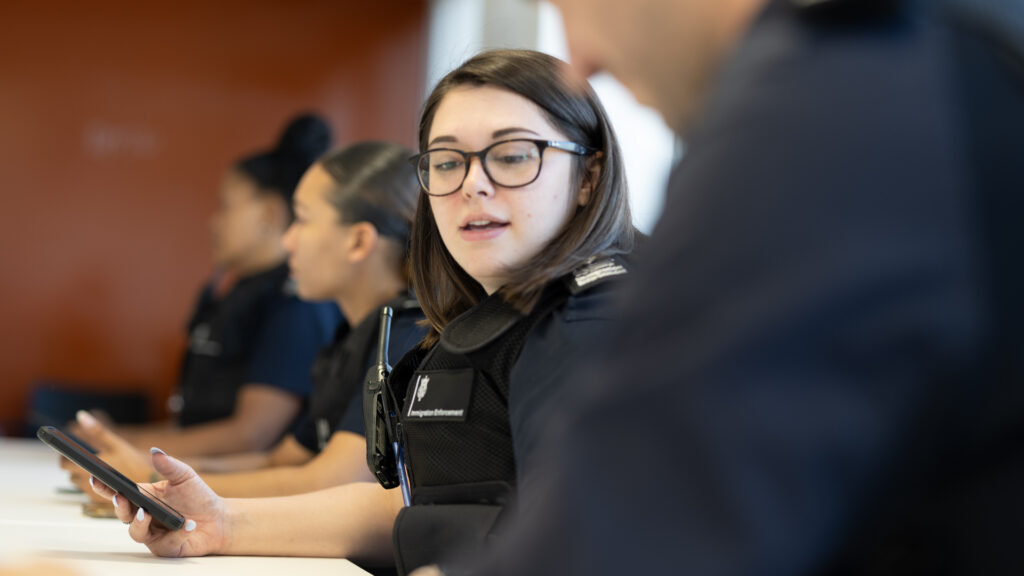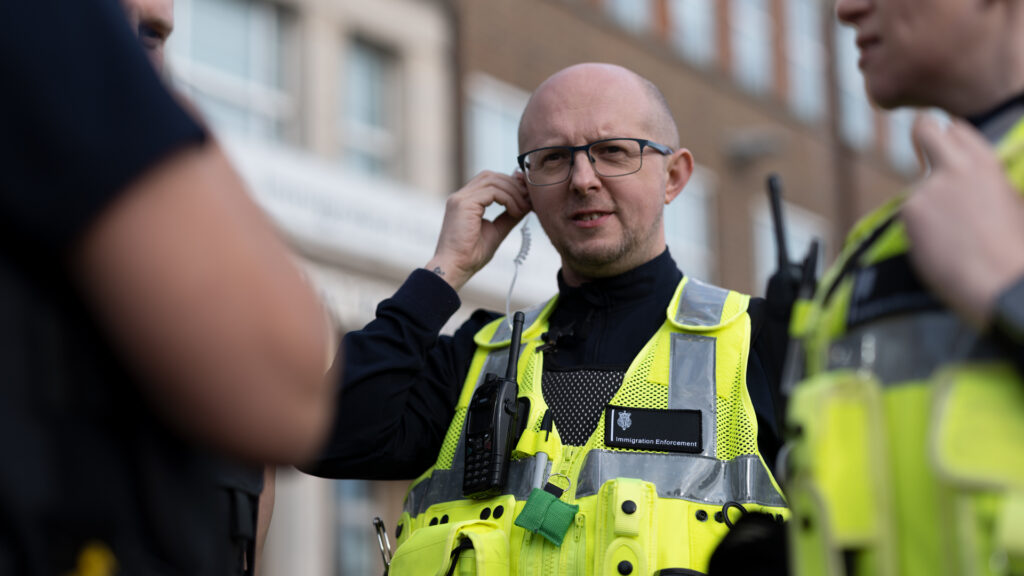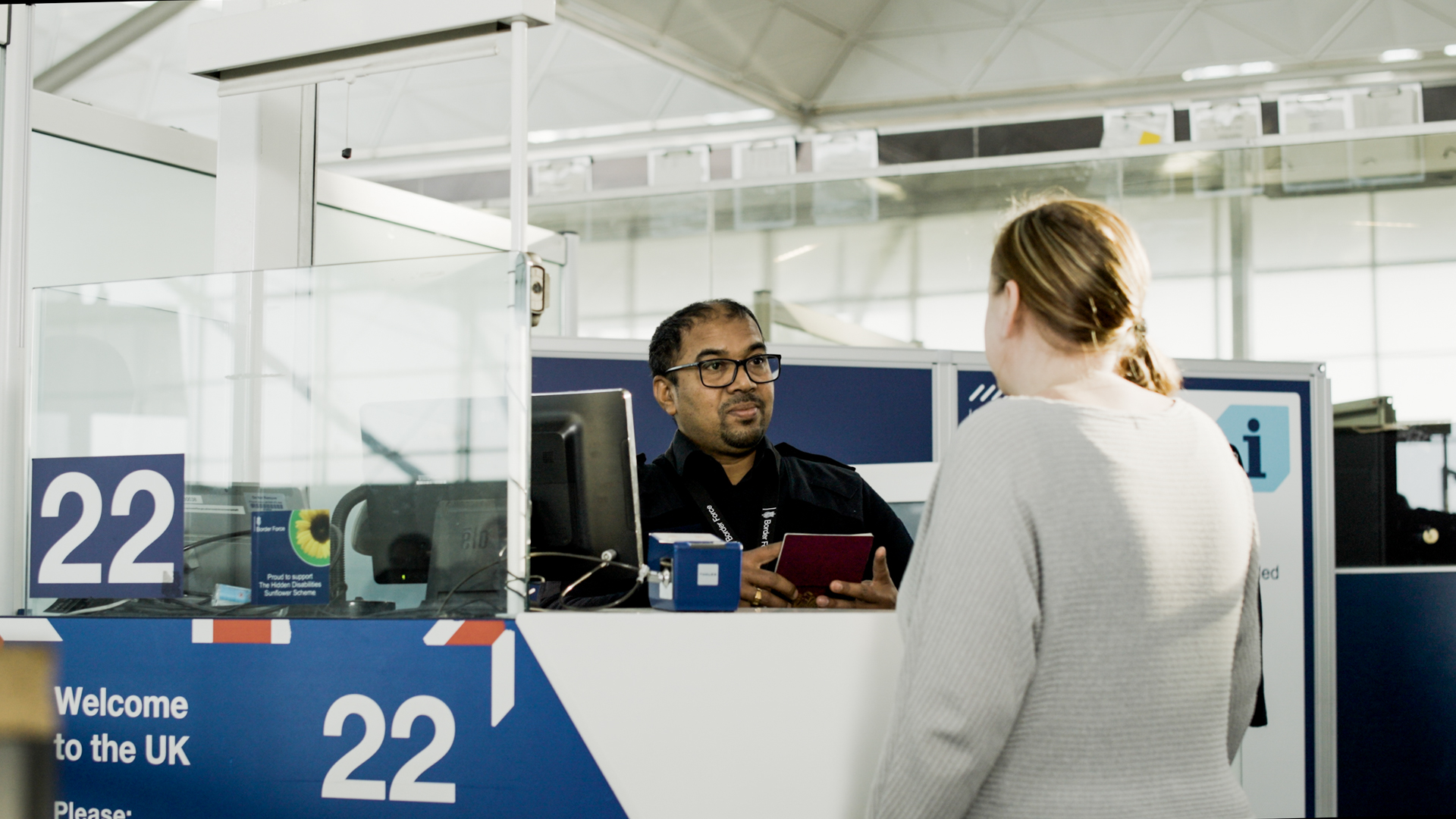Training for frontline personnel
Training for frontline Border Force and Immigration Officer roles will include teaching skills in personal safety and restraint techniques to keep you and your team colleagues safe. This Public and Personal Safety Training (PPST) requires physical activity and physical contact with the other delegates.
The level of PPST that you will be required to undertake will be dependent on the role you are appointed to.

- Border Force Officers are required to pass Level 3, which develops skills in personal safety, arrest and restraint techniques.
- Immigration Officers are required to pass Level 3 (as above) and Level 2, which develops additional personal safety skills including tactical body positioning, breakaway, blocking, parry and communication skills. In addition to core PPST skills, the initial arrest course (Level 3) encompasses elements of operational arrest work that delegates will be required to pass.
You will be required to complete a health declaration in advance and, if necessary, attend a medical examination. A formal job offer cannot be made if you do not have the level of physical fitness needed to undertake and pass the training. You must be fit, willing and able to undertake annual recertification.
For frontline Border Force Officers, initial training lasts for five weeks. This includes core immigration training and induction as well as PPST. You will be allocated to a training hub near Heathrow, Manchester, Folkestone, Stansted, Tilbury, Gatwick or local to your home port depending on the size of the location and number of new entrants. If you do not live within a reasonable commutable distance to one of our training locations, there may be a requirement for some overnight stays. Travel and accommodation costs will be paid by Border Force.
For Immigration Officers¸ initial training lasts for just over two weeks – ten days for Level 3 and two days for Level 2. Upon enrolment, you will receive joining instructions detailing your training location. This will likely be at one of our venues in Southampton or Stockport (subject to change). If you do not live within a reasonable commutable distance to one of our training locations, there may be a requirement for some overnight stays. Travel and accommodation costs will be paid by Immigration Enforcement.
This training takes place Monday to Friday and does not require shift working (although Sunday travel may be necessary). No Annualised Hours Allowance (AHA) is payable during the initial period of training unless you are an internal candidate already in receipt of AHA, in which case payment of the allowance will continue.

Appearance
As a frontline uniformed service working with the public, Border Force and Immigration Enforcement Officers are required to wear a uniform whilst on duty. This will be provided to you after your start date. You must ensure that your uniform is worn correctly, is kept clean and is well presented. To support this requirement, adequate uniform supplies will be available and issued.
Uniformed staff represent their organisation at all times and should ensure that their dress and personal appearance reflects this responsibility.
For Border Force Officers, visible non-offensive tattoos are permissible if they are not facial or on the front or side of the neck (above collar line). Tattoos behind the ear lobe on the back of the neck are acceptable. Tattoos will need to be covered up for certain official events. Under no circumstances should tattoos that could be considered offensive be made visible. This could include discriminatory, racist, sexist, sectarian, homophobic, political, rude, lewd, crude or violent images or text.

